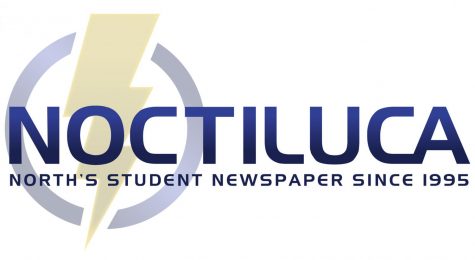2021 ACT Tips & Tricks
March 7, 2021
March 9, 2021 is right around the corner, so here comes the most horrifying thing known to the 11th grade since pep rallies were introduced (which are never rigged in favor of the Seniors).
Fortunately for those last-minute test takers, the Noctiluca compiled a list of our favorite tips from top scorers (including those with perfect 36s) to share with you:
It’s important to note that the ACT is not an MRI, but rather a paper and pencil test that “measures” intellect. Alas, even though Steve Jobs rejected your suggestion for a brain transplant, you can still achieve your dream score. Like any test, the ACT has specific strategies that are proven to help you do better.
Strategies & Notes:
- English Section:
- If out of time, always fill in the left-most bubbles to guess since A & F show “No Change,” which statistically is the right answer more often than any other option for questions.
- Do not refer to nouns and pronouns with “they” or “them” when it is an unidentified individual. Always use “he/she” or “him/her” even if you don’t know the gender.
- Always get rid of repetitive information even if it sounds more sophisticated than a non-repetitive answer. Sometimes you have to look a few sentences above and below in a paragraph to discover repeated details.
- The shortest answer is best, when in doubt.
- Fewer is for countable items (cars); Less is for non-numerical quantities (hunger).
- It’s -> It is; Its -> possessive.
- Math
- Know how to use your calculator to do things you don’t have to time to learn:
- Always convert to the right units if a problem asks for it! CIRCLE any questions that do so, in which case you won’t forget if it asks for it.
- Skip a question if is taking you more than 90 seconds to solve it.
- Reading
- Process of elimination is the best way to go about passages.
- Try to spend 3-4 minutes reading the passage to the point where you are almost skimming. ANNOTATE the packet and jot down quick 3-word-phrase notes in the margins because it will help you find questions later you don’t know.
- READ ALL ANSWER CHOICES and what TYPE OF ANSWER the question is asking for. If an answer choice describes the right-kind of tone in a passage, but the question is asking primarily about the text’s meaning, you don’t need to waste time looking for tone words in parts of the answer choice. An accurate tone isn’t going to rectify a non-related explanation of the plot!
- Tackle questions first that reference parts of passages with line numbers, then take on questions about overall meaning of passages last. Do this because when you do the easier questions first, re-reading the passages makes it easier to see the meaning on a second or third read.
- Don’t select over-dramatic/over-the-top answers because they are usually wrong.
- Science
- Stay awake, you’re almost done by the time you get to the last multiple-choice section. Positivity and alertness are strategies for good scores too!
- Skip any sections that look like completely foreign to you, and first do passages that are similar to subjects you covered in high schools.
- Mark notes of general trends 80% of answers are found from reading tables and graphs in the margins when you look over them.
- Writing:
- Get to at least a third page, and aim for the fourth because all experts and test-tutors agree that length is the greatest indicator of a high score… That being said, skipping lines and writing “blah blah blah” twenty times will not put your two readers in a charitable mode for giving you 12/12.
- Address at least one of the given opinions. To do so effectively and time efficiently, quote a small part of the given opinions or just loosely reference one. You don’t get points for writing all three given passages verbatim that they give you. A copy machine can do that, so sound better than the Scantrons grading your other sections!
- Make up evidence if you have none… The ACT doesn’t fact check. This is about how good you’re writing sounds, not if it’s true! Quote a fake New York Times article or pretend you’re environmental club even if you’re not if it helps you write!
The breakfast of choice for all test conquerors is light, fruity, and will not leave you “hangry” in the middle of the Science Section. First, grab some berries to chow down on since anti-oxidants are great for combating cell aging and death. Eat moderate amounts of grains when you get up early, and pair that with eggs or Canadian bacon to make a sandwich. Sadly, bacon will bring up our cholesterol, that will in turn lower your score. Finally, eating a small granola bar or apple on the road is a great way to get you through the first hour of filling out your name and address in the form of bubbles.
Also, show up at 7:30 AM and no later at North to ensure you’re not late…. You can’t get a 36 if you’re not in the room! And wear that mask!


